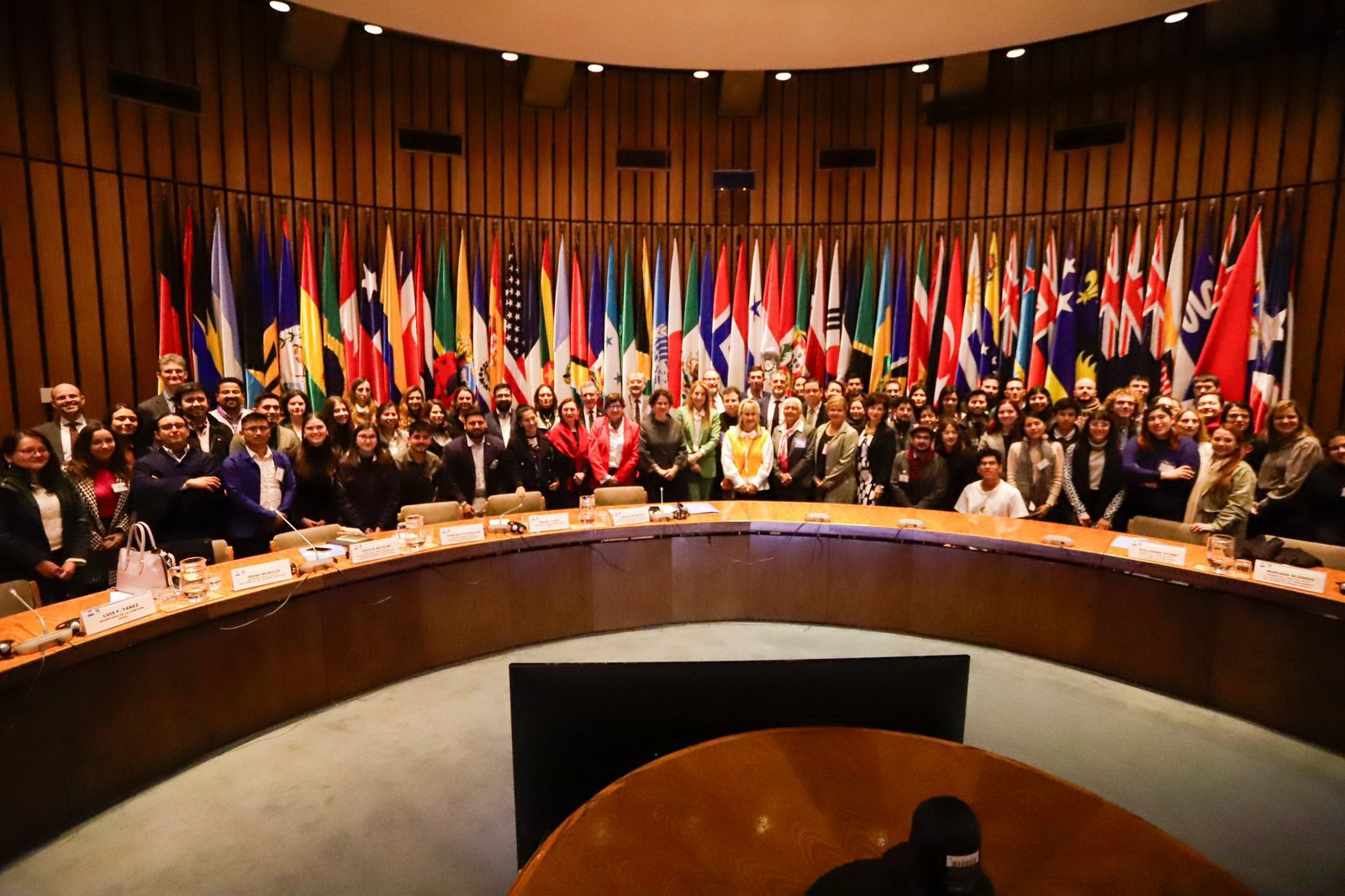Photo: Ministry of Environment of Chile
Today, Thursday, August 10, the first session of the Committee to Support the Implementation of and Compliance with the Escazú Agreement was held at the headquarters of the Economic Commission for Latin America and the Caribbean (ECLAC) in Santiago, Chile. This committee is important because it must contribute to materialize the postulates of the Escazú Agreement for the benefit of the States and the general public of Latin America, which is so affected by the effects of the climate crisis, the murders of environmental defenders, the drastic reduction of biodiversity and the increase in illegal activities that depredate ecosystems.
During the meeting, the first seven members of the Support Committee, who were elected in April during COP 2 of the Escazú Agreement held in Argentina, were sworn in. This Committee is made up of 7 people (4 women and 3 men) from 5 countries that are part of the Escazú Agreement and 2 from countries that are not part of it, representing Latin America and the Caribbean.
At this first meeting, Patricia Madrigal was elected as the first chair of the Committee, and Andrés Nápoli and Carole Excel as vice-chairs, all experts from civil society, whom we at Law, Environment and Natural Resources (DAR) salute and wish them success in the important work they will be carrying out.
Within the framework of this meeting, the Escazúhora Regional Network delivered a
letter
to the Committee reminding them that the Escazú Agreement provides for the possibility of establishing an open dialogue with members of the public, for which the Regional Network (of which DAR is a member) offered its support and availability in accompanying the functions and role that they are initiating today, in order to strengthen the alliance and the articulated work with civil society.
At this event, it was also reiterated that the Escazú Agreement, which has been in force since 2021 and currently has 24 signatory countries and 15 States Parties, is key to achieving sustainable and inclusive development, because it contributes to improving access to information, participation and justice in environmental matters for all social groups, particularly those in vulnerable situations. In addition, it was noted that it is the first regional and world treaty to include specific provisions for the protection of environmental defenders. For all these reasons, a call was again made to all the countries of the region to adhere to the Escazú Agreement. The recent Summit of Amazonian Presidents in Belém, Brazil, was mentioned as a space that shows the commitment to implement the Agreement and its provisions.
The session ended with the words of the Minister of Environment of Chile, Maisa Rojas, who mentioned that this process will help to respond to the climate emergency and the respect of human rights, mentioning that Chile has signed a voluntary contribution to the Escazú Agreement contributions fund. It should be noted that the meeting was attended by the public in person and that it was also possible to follow it virtually through this link:
https://live.cepal.org/escazu/
.


